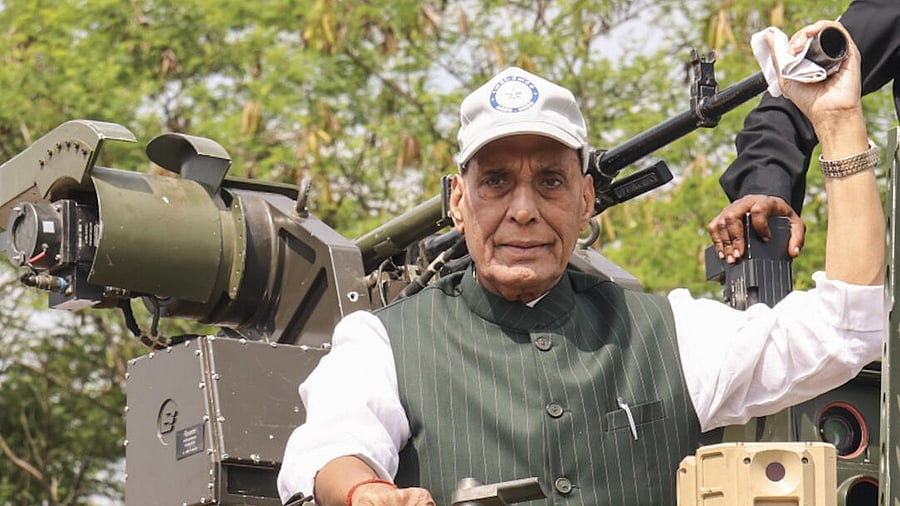
In this image posted on Oct. 16, 2025, Defence Minister Rajnath Singh during the Consultative Committee meeting, in Pune.
Credit: @SpokespersonMoD/X via PTI Photo
Defence Minister Rajnath Singh on Wednesday, October 22, lauded India's Operation Sindoor, calling it an "extraordinary" demonstration of tri-services synergy. Singh went on to say that Pakistan is still recuperating from the "severe blow" inflicted by India's military.
The Minister reiterated that the operation once again proved India's resolve of devising coordinated, adaptive and preemptive strategies to deal with emerging national security challenges.
Singh was speaking at a book launch event.
"Operation Sindoor witnessed extraordinary jointness and integration among the three services, and reaffirmed the government's resolve of devising coordinated, adaptive and preemptive defence strategies to deal with the challenges arising out of the changing world order and evolving methods of warfare," he said.
The defence minister emphasised that traditional defence outlook is no longer sufficient in today's times as wars are fought not only on the borders, but have now taken a hybrid and asymmetrical form.
He asserted that the government has undertaken several "bold and decisive" reforms to build a future-ready military to ensure national security as well as strategic autonomy of the country.
"One of historic steps was the creation of the post of chief of defence staff which proved to be an important milestone in strengthening coordination and synergy among the three services," he said.
"The entire world witnessed the result of jointness and integration during Operation Sindoor. Pakistan is still recuperating from the severe blow dealt by our armed forces," Singh said.
Indian armed forces targeted nine terror infrastructures in Pakistan and Pakistan-occupied Kashmir in May in retaliation for the April 22 Pahalgam terror attack.
The defence minister also underlined the importance of civil-military fusion and that it should be viewed as a strategic enabler that fosters innovation, preserves talent, and propels the nation towards technological self-reliance.
"This fusion is possible only when we connect our civil industry, private sector, academia, and defence sector for a common national purpose. This increases our economic productivity and strategic edge," he said.
Singh said the world is moving beyond "division of labour" and towards "integration of purpose", and despite shouldering different responsibilities, there is a need to work with a shared vision.
"Our civil administration and military are certainly separate in terms of division of labour, but since coming to power, our prime minister has emphasised that no administration can operate in silos; it must work in collaboration with each other," he said.
Stressing on the need to understand the nature of civil-military fusion in the present technology-driven era, Singh called for identifying core challenges and adopting a focused approach to effectively utilise civilian technological capabilities in the military domain.
"In today's global perspective, civil and military domains are gradually merging. Technology, economy, and national security are now interlinked more than ever before." He said information, supply chains, trade, rare earth minerals, and cutting-edge technology are being used in both domains.
"In such circumstances, civil-military fusion has become not a modern trend, but the need of the hour. Ignoring it is not good for strategic growth," he argued.
"Many of our important technologies often remain limited to civilian use. Under a dual-use concept, if these innovations are brought to military applications or vice versa, our national power can increase manifold," he said.
With inputs from agencies.
